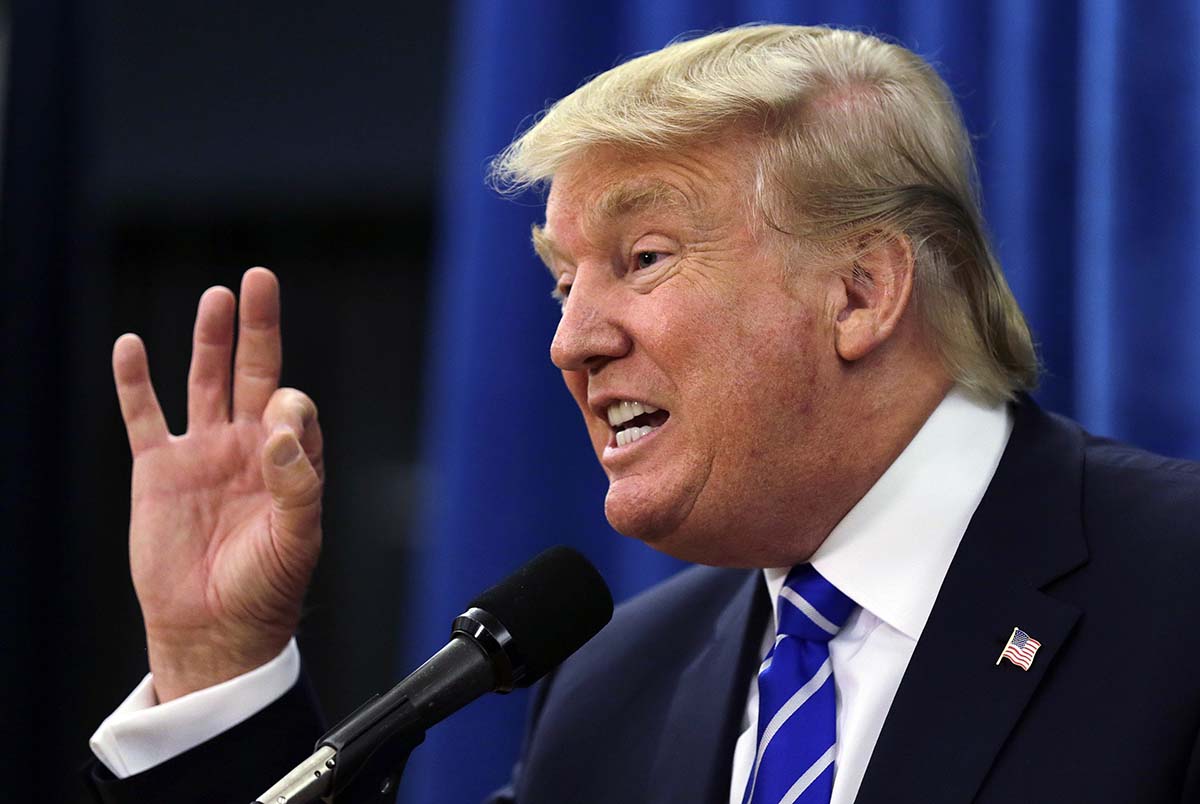Trump’s Proposed Budget Would Gut Health and Science Funding

Photo via AP
Massive cuts detailed in President Trump’s budget blueprint could change health and science research as we know it, nationwide and here in Massachusetts.
The plan—which is just an outline, and must be approved by Congress—would slash money from nearly every federal agency, and reallocate $54 billion for defense spending. The National Institutes of Health (NIH) would see its funding shrink by $5.8 billion, a fifth of its budget; the Department of Health and Human Services (HHS) would say goodbye to $15.1 billion, roughly 18 percent of its budget; and the Environmental Protection Agency (EPA) would part with $2.6 billion, almost a third of its budget.
If passed, the cuts could be catastrophic for the local research community. In fiscal year 2016 alone, Boston institutions received an enormous $1.8 billion from the NIH. That number would likely crumble under Trump’s proposed budget, potentially stalling current research projects and choking out new ones.
A number of Boston’s hospitals and research centers are also entrenched in national science efforts, including the Precision Medicine Initiative (PMI) and the Cancer Moonshot. Those projects received a financial boost in December, when the 21st Century Cures Act passed, but the money is discretionary—meaning it’s still subject to political dealings, and could be diverted away from its intended targets. If that happens, partner institutions would be left hanging.
Harry Orf, Massachusetts General Hospital’s senior vice president for research, voiced that concern back in December.
“If we make those significant [research] investments, and suddenly [the PMI] goes away, it’s very difficult for us to deal with that,” he said. In 2016, Mass General received almost $365 million in NIH grants.
Trump’s suggested budget isn’t all bad when it comes to health. Particularly noteworthy for Massachusetts, the plan bumps opioid abuse relief by $500 million, funding that would be used for both prevention and treatment.
The document also includes a $4.6 billion hike in veteran’s healthcare funding and a $500 million Federal Emergency Response Fund “to rapidly respond to public health outbreaks,” such as Zika. It also mentions a vague investment in “mental health activities” in “high priority areas” such as suicide prevention, mental illness, and children’s mental health.
In addition, the budget would increase the amount pharmaceutical companies pay the FDA to review new drugs and devices, a move that could generate an extra $1 billion in 2018.
Still, the proposed budget is only the latest blow the Trump administration has dealt to the local health community. First, the President’s controversial travel ban threatened local hospitals’ researchers. Then, a possible Affordable Care Act repeal and replacement thrust the state’s Medicaid program into a vulnerable position.
Now, with vast budget cuts on the state and federal levels on the table, the future of local healthcare looks hazier than ever.


